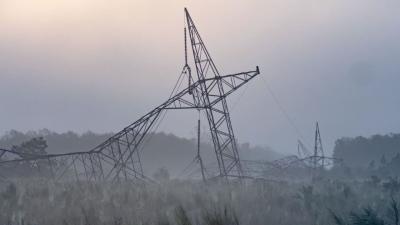Climate-Aware Decision-Making: Lessons for Electric Grid Infrastructure Planning and Operations
Electric systems are vulnerable to climate change. Planning for the future requires new approaches that account for climate uncertainty. We identify key ideas from the decision sciences that can help electricity practitioners. Robustness means finding solutions that work for many possible futures. Adaptive planning means adjusting to changing conditions. Multi-stakeholder engagement means considering many outcomes. It also means developing solutions through collaboration. We develop specific recommendations for incorporating these ideas into planning. We also identify key knowledge gaps for the science community to address.
This study shows how electricity sector planners must grapple with new kinds of uncertainties to address climate resilience. However, lessons from decision science on how to plan in the face of uncertainty have yet to be used widely for electricity planning. We demonstrate concrete ways that decision science concepts and methods can be adapted to electricity sector planning. The study provides a guide for electricity practitioners seeking to improve climate preparation. For researchers, our work illuminates critical knowledge gaps. These gaps lie at the interface of climate science, decision-making, and electricity sector resilience. This work is useful for many sectors seeking to improve climate resilience in a scientifically robust way.
Climate change poses significant risks to large-scale infrastructure systems and brings considerable uncertainties that challenge historical planning approaches. Here we focus on how climate awareness might be better incorporated into planning and decision-making in the electric power sector. To do so, we consider lessons from decision science literature where researchers have specifically focused on how to make better decisions under uncertainty. We perform a three-part review: of decision science literature on best practices for decision-making under uncertainty, of industry practice documents to understand how new uncertainties may affect the types of decisions electric utilities are making today, and of literature on electricity sector planning under climate change to assess how lessons from decision science might fit into sector-specific analyses. We discuss how characterizations of uncertainty from the decision science literature might guide approaches in the electricity sector to appropriately capture climate-related uncertainties. We also distill three key ideas from the decision science literature that can be incorporated into electricity sector planning to manage these new uncertainties: robustness, adaptive planning, and multi-stakeholder engagement. We offer example recommendations for how these key ideas might be incorporated into one essential type of planning activity, capacity expansion.

